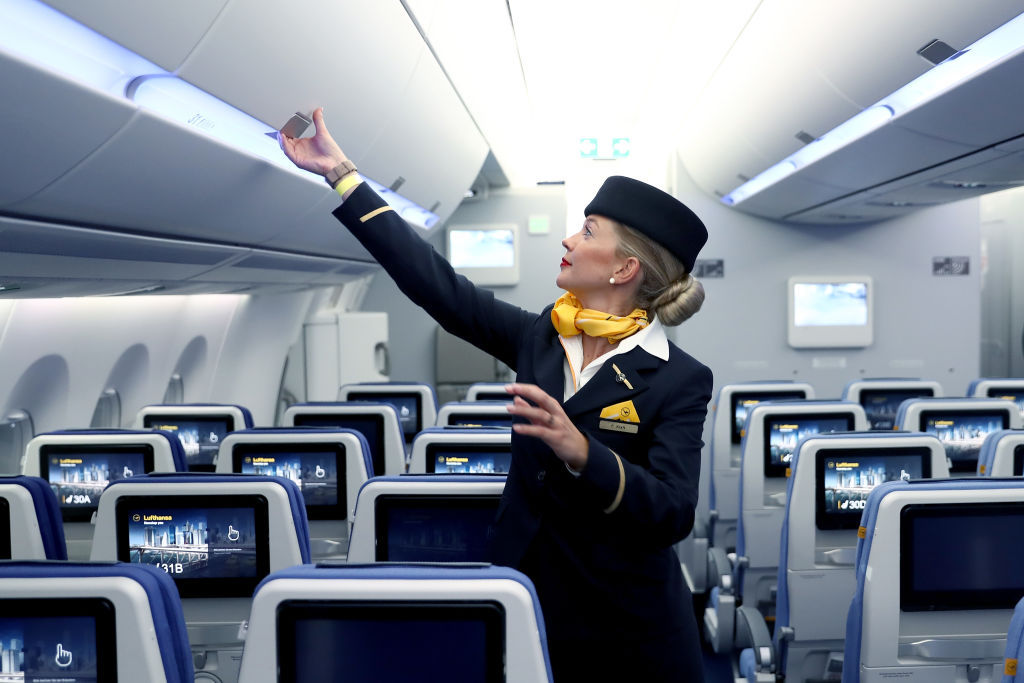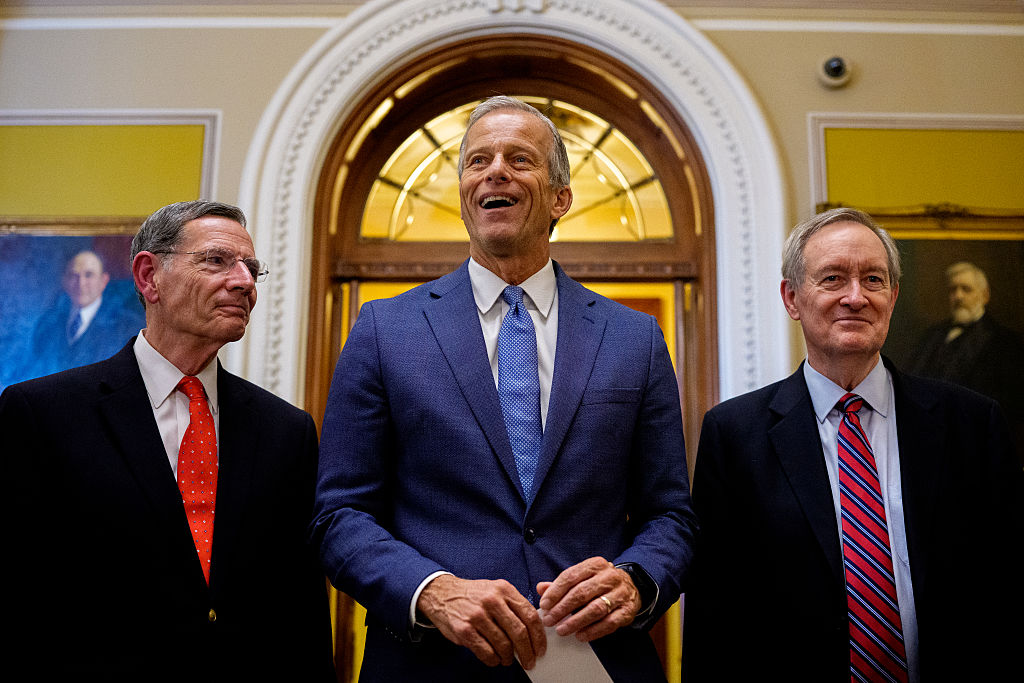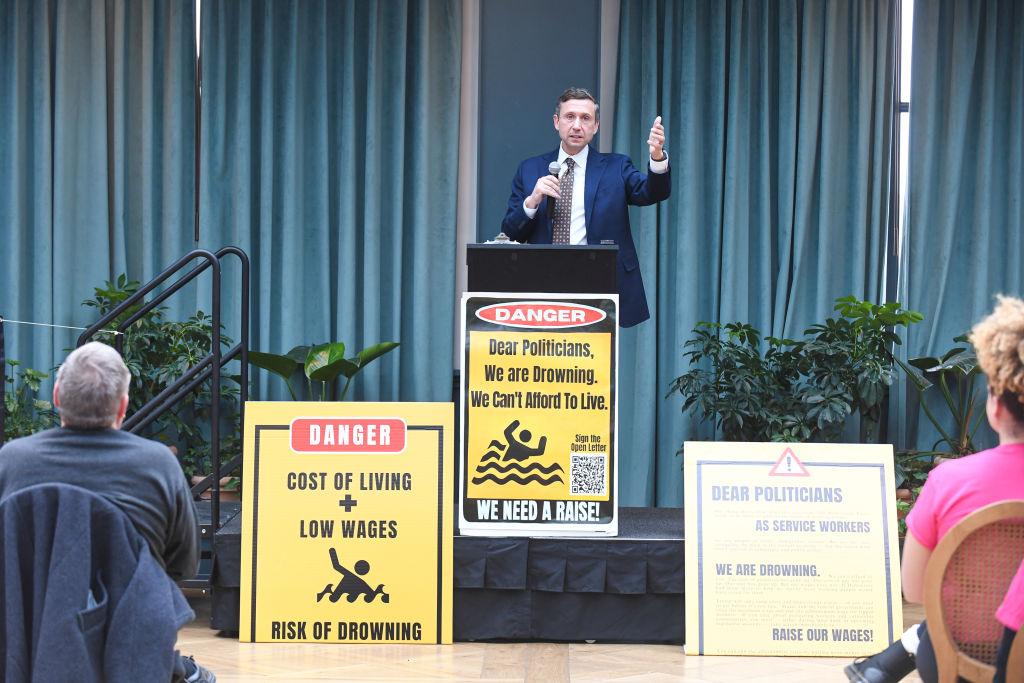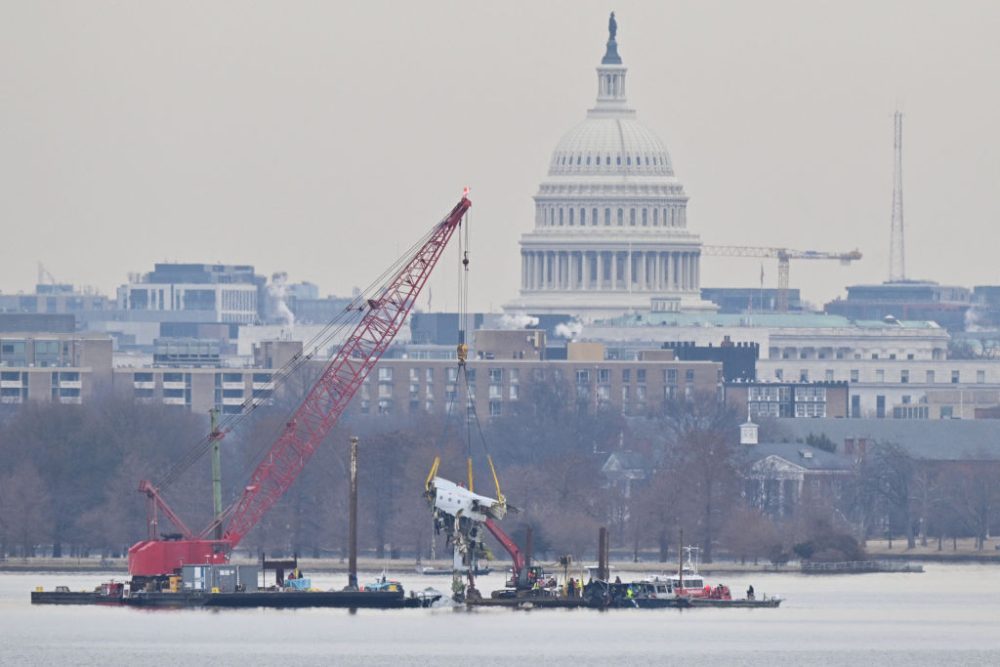The recently passed coronavirus stimulus bill offers $58 billion in aid to the airline industry to survive the massive decrease in travel caused by the COVID-19 outbreak, but workers are already concerned that airlines are taking advantage of taxpayer money while failing to live up to promises to their employees and customers. The Treasury Department on Tuesday issued its guidelines for the $29 billion loan and $29 billion grant programs, reiterating that companies who apply for money must agree not to layoff or furlough their employees until after September 2020. Treasury also required recipients of grant money, which is earmarked for payroll assistance, to only use that money for American workers. Even so, airlines that are eligible for the grant program are reducing hours and cutting pay for many employees or announcing their intentions to lay off workers beyond the September deadline. ‘If the recovery is as slow as we fear, it means our airline and our workforce will have to be smaller than it is today,’ United Airlines told employees in a letter on Friday. Delta CEO Ed Bastian similarly said in a memo that even with grants, workers will not be making nearly as much money as they were before. ‘I know that a temporary reduction in work hours as we shrink the operation is difficult,’ Bastian said. ‘But at Delta we’ve always shared our success, and we stand together to face our challenges as well.’One Delta employee told Business Insider that the move as ‘typical’ of Bastian, explaining, ‘what Ed Bastian is doing is accepting the government grants to help cover payroll but still making workers reduce hours’.‘It is a typical Bastian move where he sells it to employees as taking a reduction to help Delta in its time of need,’ they added. Employees for American Airlines and United noted that they will likely only receive a ‘contractual minimum’ of income as arranged by their unions. The new airline loan program, meanwhile, does not even contain requirements that the money be spent in the US. A company applying for a loan must be based in the United States and have a majority US staff, but otherwise have few specific guidelines they must meet beyond specifying how they intend to use the loan. The CARES Act is purportedly intended to help American companies and individuals, but the loan program for the airline industry does not ensure the money stays in the US, nor does it work toward reshoring a critical sector like it does for medical supplies or other manufacturing work. Individuals familiar with the airline industry told The Spectator that the current travel lull will present a golden opportunity for airlines to conduct maintenance on their planes. Over the past decade, the bulk of heavy maintenance work has been offshored to foreign companies, which employ cheaper labor. It’s thus well within the realm of possibility that airlines will be purchasing foreign work that is financed by taxpayer-funded loans intended as relief mechanisms for the American economy.Vanity Fair reported on the offshoring of the airline maintenance industry in 2015:‘Nearly all large US airlines have shifted heavy maintenance work on their airplanes to repair shops thousands of miles away, in developing countries, where the mechanics who take the planes apart (completely) and put them back together (or almost) may not even be able to read or speak English. US Airways and Southwest fly planes to a maintenance facility in El Salvador. Delta sends planes to Mexico. United uses a shop in China.’The reliance on foreign maintenance and manufacturing companies has led to a decline in safety standards for commercial airlines, with the FAA falling short of the resources required to inspect these offshore sites. In the meantime, American airline maintenance companies have been forced to lay off employees. Those companies are now struggling even harder due to the coronavirus outbreak, but have found little relief in the CARES Act. ATS, a large airline maintenance firm in Washington state (and one of the few left in the US), laid off 150 employees last week. ‘We are fighting for our lives up here right now,’ CEO Matt Yerbic told the Seattle Times. ‘With the airlines in crisis, our work is at about 50 percent of where we thought we’d be in the next couple of weeks. It’s pretty ugly.’The Treasury Department reserves the right for the loan requirements to ‘be updated, revised, or modified at any time’ but did not respond when asked if they would amend the loan program to require the money be spent in the US or how they would evaluate applications. United and Southwest are still evaluating whether or not they will apply for the loans or grants available through the CARES Act. A spokesperson for Southwest told TheSpectator:‘We are in receipt of the Grants and Loans Procedures and are actively doing our due diligence to fully understand the nuances associated with the requirements. Until we’ve had more time to review and study the procedures, it’s premature to say how we will proceed. We are extremely appreciative of the work of our federal leaders, who have recognized the unprecedented health and economic crisis that our nation is currently facing due to COVID-19, as well as the importance of airlines to our overall national economy, the supply chain, and the nation’s future recovery after this crisis subsides.’Neither airline company answered whether they will conduct airplane maintenance at offshore companies during the current travel lull. American Airlines did not return a request for comment.
Will American workers see enough of the $58 billion airline bailout?
In the last 10 years, heavy maintenance work has been offshored to foreign companies

A Lufthansa flight attendant
The recently passed coronavirus stimulus bill offers $58 billion in aid to the airline industry to survive the massive decrease in travel caused by the COVID-19 outbreak, but workers are already concerned that airlines are taking advantage of taxpayer money while failing to live up to promises to their employees and customers. The Treasury Department on Tuesday issued its guidelines for the $29 billion loan and $29 billion grant programs, reiterating that companies who apply for money must agree not to layoff or furlough their employees until after September 2020. Treasury also required recipients of grant…
Comments
Share
Text
Text Size
Small
Medium
Large
Line Spacing
Small
Normal
Large
























